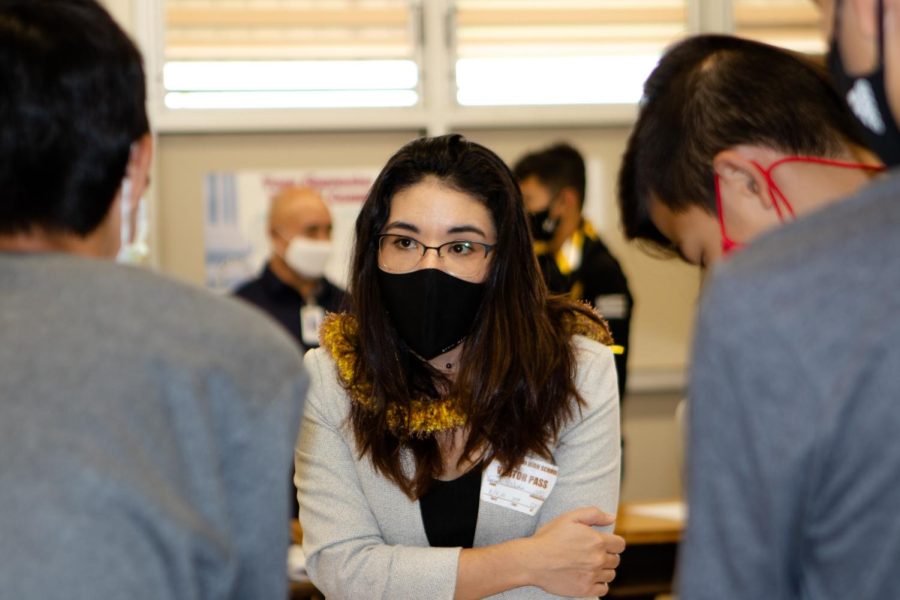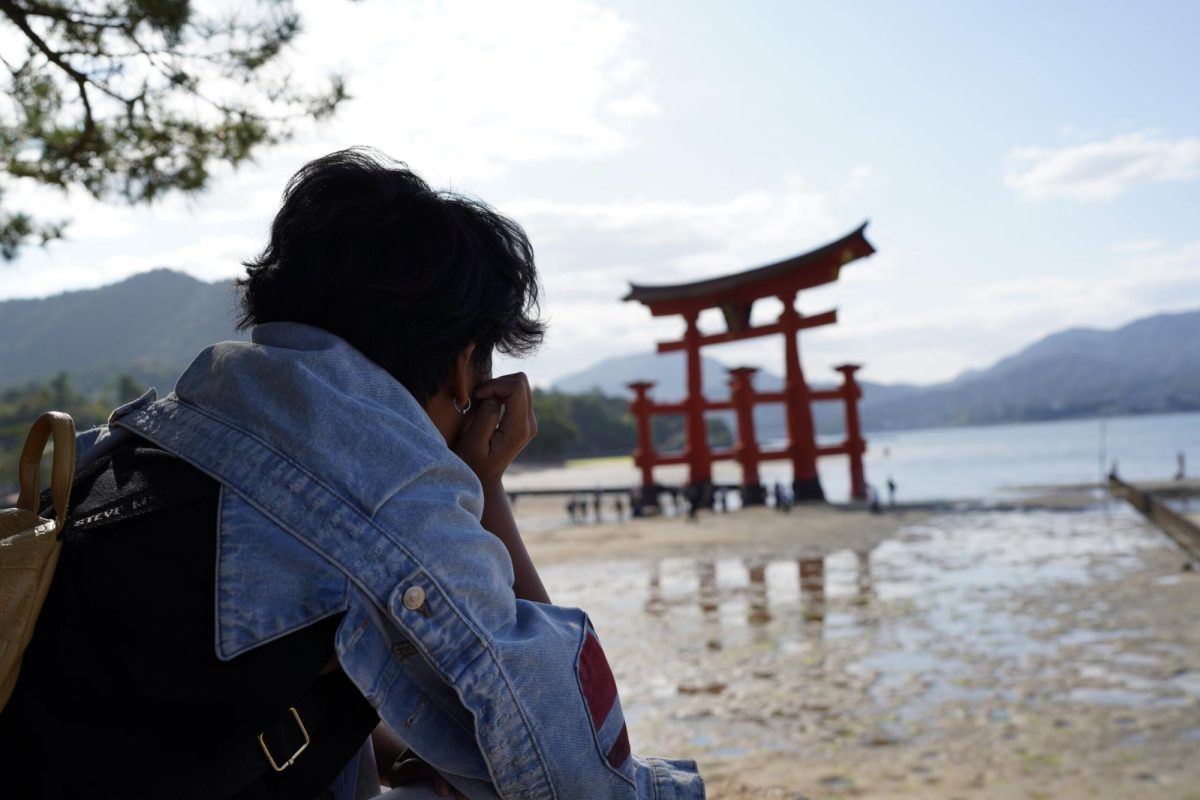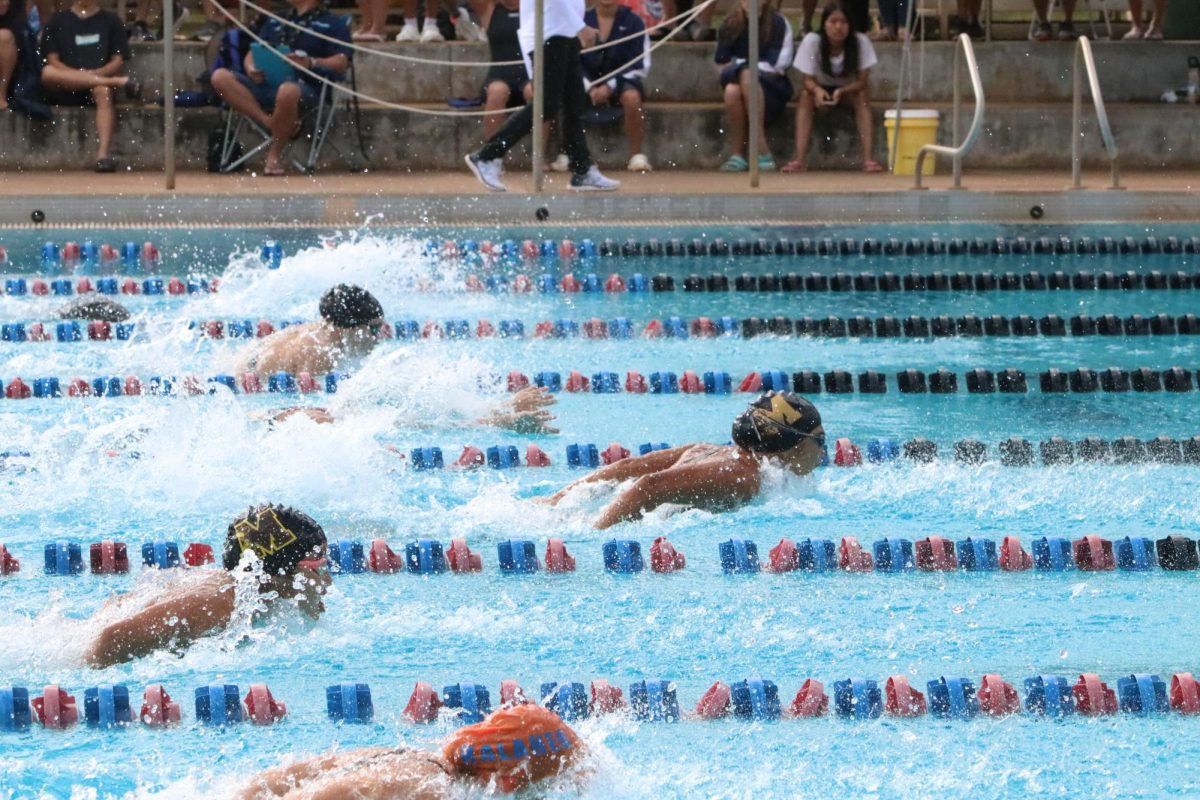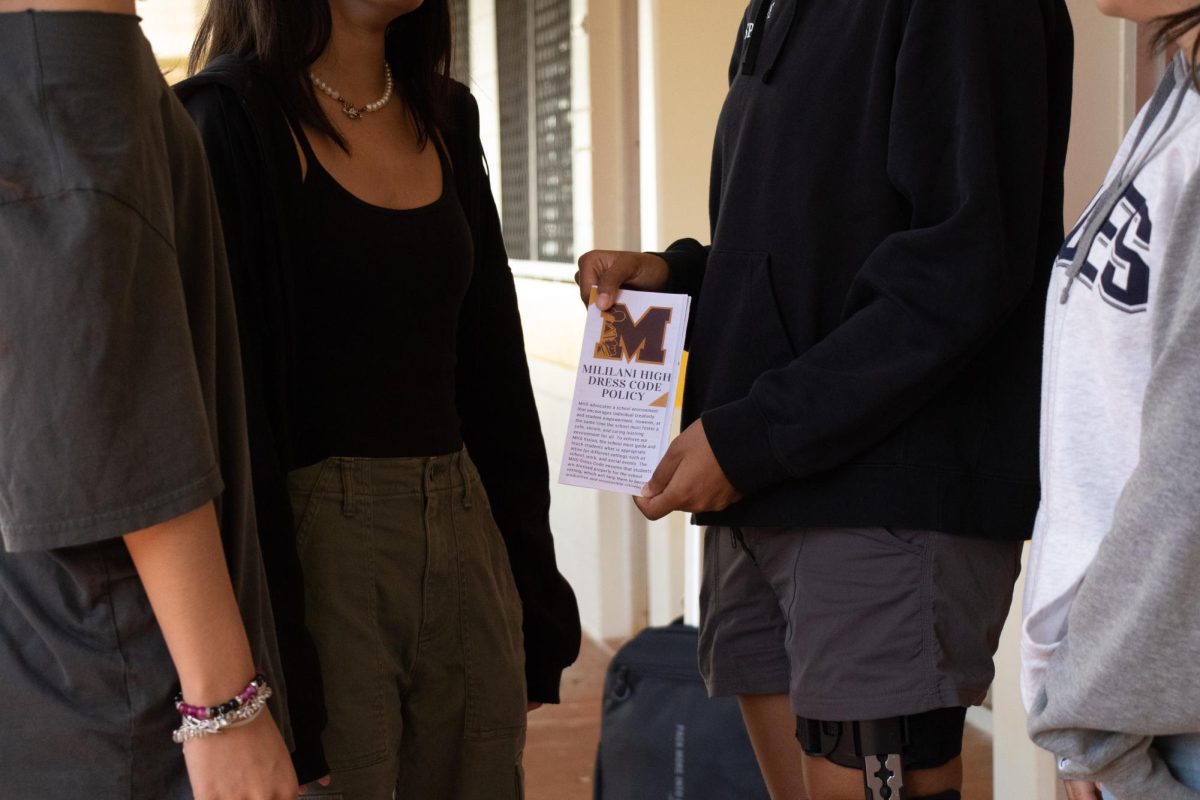Giving Back with a Lesson: Mililani High School Alumni Returns to Educate Students on Law
February 8, 2022
Students in the Debate of Democracy course at Mililani High School received interactive lectures from guest speakers on certain topics regarding the law. One guest speaker was MHS’s own Sarah Nishioka, who graduated as a part of the 2010 class. Nishioka is a government attorney with the Office of the Public Defender. She, among other colleagues, represents indigenous people of the State of Hawaii who have been charged with crimes and cannot afford a lawyer.
“So law is what we use in our society to manage disputes, and prevent violence by giving people ways to solve their problems,” said Nishioka. “And I was always very interested in helping people solve problems, and trying to improve their lives through essentially coming to agreements with others, right, resolving conflict in nonviolent ways.”
Nishioka has been working with the organization for three years, allowing her to represent numerous people in her community. Nishioka’s position has exposed her to many different people from a variety of backgrounds, each going through a very challenging period of their lives. From clients to colleagues, diversity is prominent in the field of law, allowing her to expand her views and knowledge that improved her skills as a public defense attorney.
“I think personally, working as a public defender has exposed me to many different types of people. And it’s given me a greater understanding of the people who live in my community, and given me more compassion to the people around me, because I can see the things that they’re going through. So approaching them with understanding has been very useful. But looking at my colleagues, I can see that they come from all walks of life,” said Nishioka. “They come from every different high school on the island, every different background, and we all still managed to become attorneys and work successfully. So it just really impressed upon me the idea that anybody can practice law, and anybody can have a benefit to their community.”
Upon returning to MHS to give a lecture, Nishioka educated the students about law using a court case they had studied prior to the visit. The Massie Case, which began in 1931 and closed in 1932, consisted of two criminal cases. The first case was in regards to allegations of sexual assault, while the second held accusations of murder.
“It’s a historical event that highlights some really important problems in Hawaii as Hawaii developed into what it is today. Cross racial bias was a major issue in both Massie cases, there are issues of politics and corruption,” said Nishioka. “More than just the individual people involved in the case, the case represented a lot of conflicts that we’re having happening in Hawaii as a society and in the United States as a whole.”
As students dissected the Massie Case, issues such as cross-racial bias appeared to play a part in the final verdict. They were encouraged to speak their opinions and feelings on the Massie case and how it was handled. Some expressed their feelings of disappointment and frustration, while others came up with alternative techniques investigators or prosecutors could have utilized during the duration of the case.
“Everyone I talked to today, talked about the fact very respectfully for everyone involved. But you know, they were honest. And they were thinking deeply about the injustices in the case, whether the outcomes were right or wrong,” said Nishioka.
Discussing one’s own opinions and views seemed to be too large of a hurdle to overcome for some students during the lecture. As someone who described themselves as a quiet student during their high school career, Nishioka believed that it becomes difficult to express yourself nowadays because everybody is very concerned about how others perceive them. However, she encourages those to speak up. Nishioka understands that there may be fears and concerns stopping one from doing so, but she believes everyone has a right to speak their own minds and be heard.
“When you share an opinion, you always kind of have to weigh not only your right to freedom of speech, but also the potential consequences of your speech. You know, you guys are young folks. So you’re still kind of figuring out what is or is not okay. And, honestly, you’re still figuring out what you really think about things,” said Nishioka. “But I think expressing yourself is an important way to figure that stuff out. Practice makes perfect, even when it comes to your own personal thoughts and opinions. And you can’t think about things and revise your positions or grow as a person, unless you put yourself out there a little bit.”
For those who are interested in pursuing a career in law, Nishioka lists a few important skills that should be developed beforehand. According to Nishioka, every lawyer must be skillful in reading, writing, and public speaking. However, above all else a lawyer must have a passion for what they do. Some tend to question going into law because their passion may not align with what they believe law to be. However, law covers a variety of areas from the marketing industry to criminal defense.
“There are laws about everything under the sun. So no matter what you’re interested in, there’s a type of law or an area of law that you can get into,” said Nishioka. “Whether it be science, or sports, or entertainment or beauty. There are lawyers out there helping people in those industries every single day. So if you’re interested in a subject matter, that doesn’t seem very legal, it could be so don’t count yourself out.”
She also believes that listening carefully to others is a very important skill because everyone has something to say. Part of being a lawyer or in the field of justice is deciding whether one’s words are truthful or helpful. Yet, according to Nishioka, before you even speak, listening is the way that you get information about your world.




